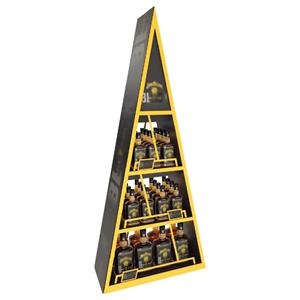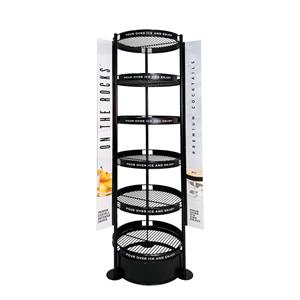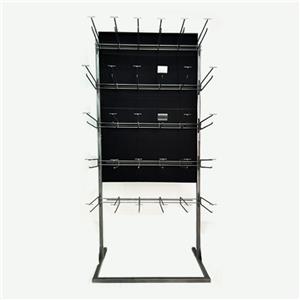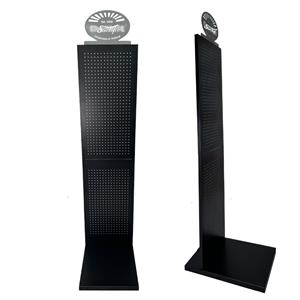How to Create High-Converting Retail Spaces with Racks
How to Create High-Converting Retail Spaces with Racks
Table of contents
1)Introduction
2)The Golden Rule of Space Planning: 3-3-3 Principle
3)Five Key Indicators for Choosing Display Racks
4)Traffic Flow Secret Weapon: Consumer Path Design
5)Update Rhythm Control: Dynamic Display Strategy
6)Future Trends: Smart Display Rack Systems
7)Action Plan Summary
8)Sintop Value
In the fiercely competitive clothing retail market, store display has become a key factor in determining sales success or failure. Studies show that a scientific layout of boutique clothing racks and clothing store shelves can extend customer stay time by 50% and boost sales by 20%-35%. This article reveals how to create a money-attracting and eye-catching retail space through the golden combination of boutique clothing racks and clothing store shelves.
1. The Golden Rule of Space Planning: 3-3-3 Principle
Three-Zone Division Method
Entrance Hot Zone: Place the seasonal key styles and use boutique clothing racks with strong visual impact.
Central Experience Zone: Use interactive clothing store shelves and matching display tables to create touchable experiences.
Deep Quiet Zone: Arrange basics and discounted items using practical clothing store shelves to guide customers through the entire store.
Sight Management
Use boutique clothing racks to display high-profit items in the golden sight layer (90-150cm).
Ensure there’s at least one key clothing store shelf per square meter.
Maintain a 1.2-1.5m main aisle width to enhance shopping comfort.
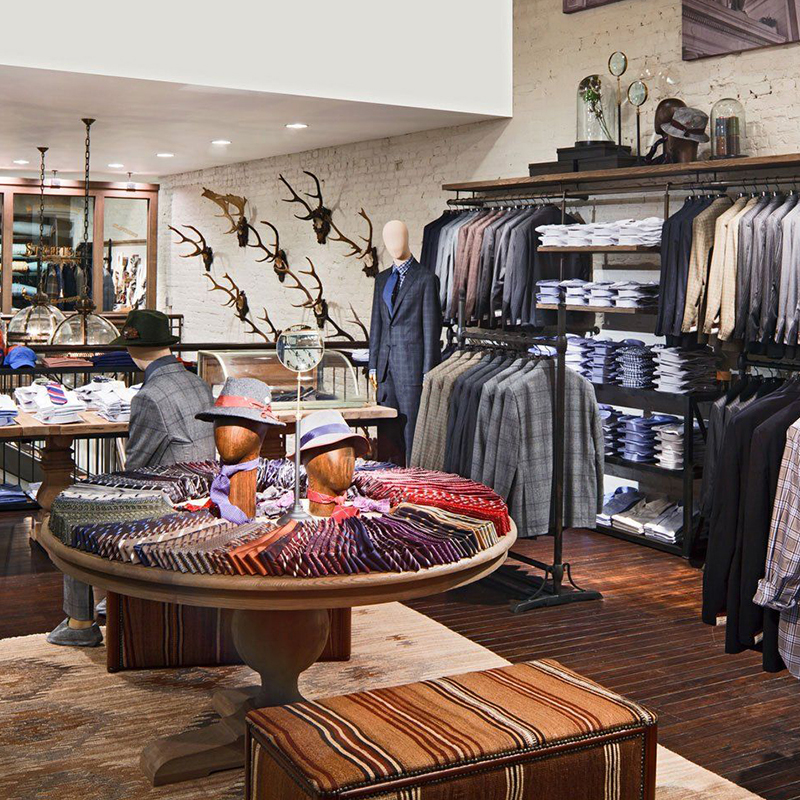
2. Five Key Indicators for Choosing Display Racks
IndicatorBoutique Clothing RackClothing Store Shelves
MaterialMetal, acrylic (modern aesthetics)Solid wood, MDF (warm texture)
FunctionRotatable, liftable designsModular and adjustable combinations
Capacity15-20 clothing pieces8-12 neatly folded stacks
LightingBuilt-in spotlight featuresShelf-integrated light strips
MobilityLockable caster wheelsDetachable for easy relocation
Expert Tip: High-end brands prefer custom boutique clothing racks, while mid-tier brands can mix 80% standard clothing store shelves with 20% custom pieces for flexibility.
3. Traffic Flow Secret Weapon: Consumer Path Design
Magnet Point Layout
Place a feature boutique clothing rack every 5-8 meters to act as a visual magnet.
At corners, position themed clothing store shelves to encourage customer turning and exploration.
Dwell Time Optimization
On the fitting room path, insert 3-4 sets of coordinated boutique clothing racks and clothing store shelves.
Near the cash register, set small product displays using mini clothing store shelves to stimulate impulse buying.
Data Validation
Use heatmaps to track customer movement around boutique clothing racks.
Conduct A/B testing of different clothing store shelf arrangements for conversion impact.
4. Update Rhythm Control: Dynamic Display Strategy
Quarterly: Update theme colors and change layout using new boutique clothing racks and clothing store shelves.
Monthly: Reposition at least 20% of display fixtures to refresh shopping paths.
Weekly: Ensure clothing store shelves and boutique clothing racks are clean and fully stocked with props.
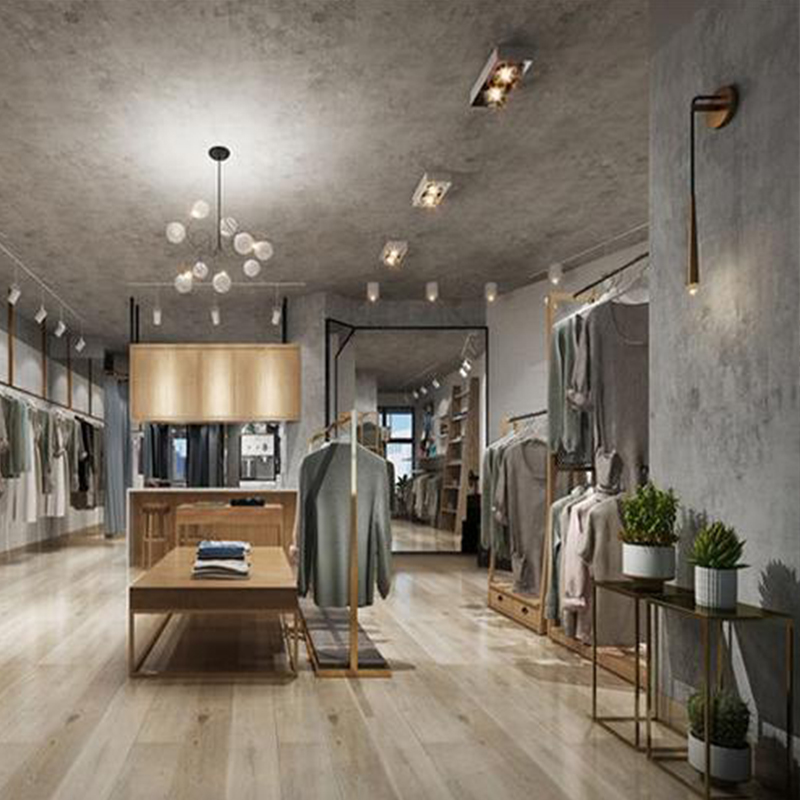
5. Future Trends: Smart Display Rack Systems
Interactive Boutique Clothing Racks
RFID-enabled smart hangers
AR mirrors integrated into boutique clothing racks
Data-Driven Clothing Store Shelves
Real-time adjustment based on sales data
Personalized clothing store shelves based on customer profiles
Common Retail Challenges and Solutions
Q: How to match stock and display capacity?
A: Use the "1:3 Rule" – for every item on the boutique clothing rack, keep three in stock and link ERP for real-time sync.
Q: How to maximize a small store’s space?
A:
Use wall-mounted folding boutique clothing racks
Choose column-wrapped clothing store shelves
Apply mirrors to extend spatial perception visually
Q: What’s the best display height for clothing categories?
A:
Tops: 120-150cm on boutique clothing racks
Pants: 80-120cm on lower clothing store shelves
Accessories: 150-170cm
Case Study: Light Luxury Brand’s Display Upgrade
By optimizing their boutique clothing rack and clothing store shelf layout, a light luxury brand achieved:
42% increase in space efficiency
65% increase in fitting room use
28% increase in average transaction value
“Display racks are no longer just tools, but silent salespeople shaping our brand’s image.” — Retail Director
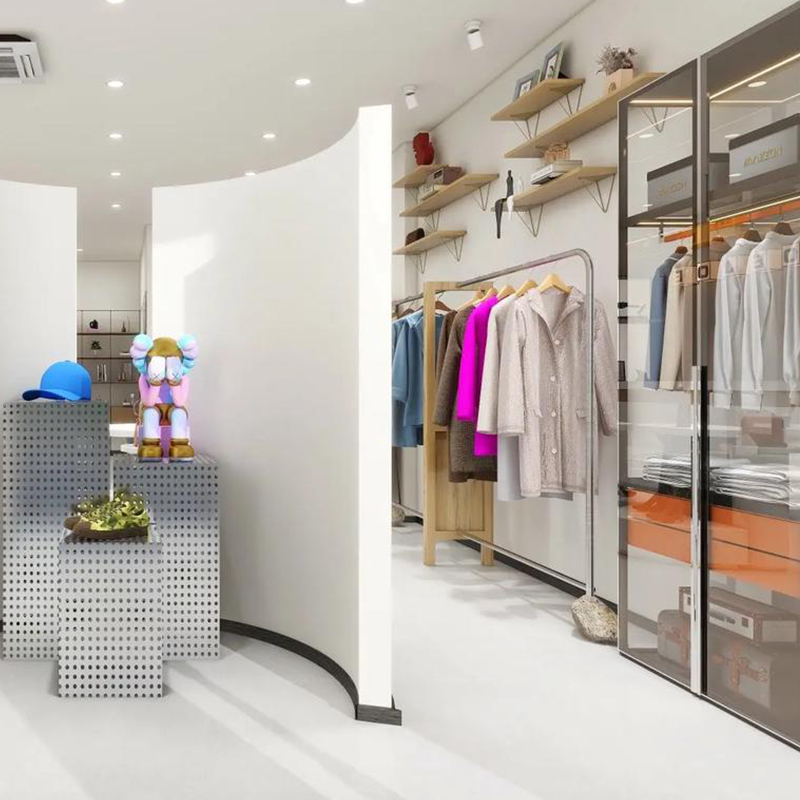
Action Plan Summary
Analyze current store hot zones using heatmaps
Create a quarterly update plan for boutique clothing racks and clothing store shelves
Test smart rack systems for intelligent layout
Train staff as visual merchandising specialists
By mastering the art of display using boutique clothing racks and clothing store shelves, your retail space can evolve from a traditional product depot into a dynamic fashion stage. In today’s visual era, every well-placed rack becomes a battle station for brand storytelling and revenue generation.
Sintop Value
At Sintop, we specialize in customizable boutique clothing racks and modular clothing store shelves designed for maximum flexibility, style, and durability. Our solutions blend cutting-edge design with practical features like smart lighting, RFID tech, and space optimization strategies—empowering retailers to build immersive, high-conversion retail environments that align with brand identity and customer behavior.

Contact information
Website: www.sintopfixtures.com
Wechat/WhatsApp: +86 15980885084
Email: elly@xm-sintop.com
FAQ
1. What are store fixtures?
Store fixtures are essential equipment and furniture used in retail spaces to display, organize, and store merchandise. Examples include shelving units, racks, display cases, counters, and hooks.
2. Why are store fixtures important?
Store fixtures enhance the shopping experience by organizing products, improving accessibility, maximizing space, and creating appealing displays that attract customers and boost sales.
3. What types of store fixtures are commonly used?
Common types of store fixtures include:
Shelving Units(wall shelves, free-standing shelves, adjustable shelving)
Display Cases (glass cases, countertop cases)
Racks (clothing racks, display racks)
Counters (checkout counters, service counters)
Hooks and Pegboards
End Caps
Signage and Graphics
Mannequins
4. How do I choose the right store fixtures for my retail space?
Consider your merchandise type, store layout, and branding needs. Fixtures should be functional, complement your store's design, and fit within your budget. Evaluate your space to determine the best fixture types and configurations for optimal product presentation and customer flow.
5. Can store fixtures be customized?
Yes, many store fixtures can be customized to align with your store's branding and specific needs. Customization options include materials, colors, sizes, and designs. Collaborating with a fixture supplier or designer can help create fixtures that match your store’s style and functional requirements.
6. How can I maximize space with store fixtures?
Utilize fixtures that optimize vertical space, such as wall-mounted shelves and tall display racks. Modular and adjustable fixtures can adapt to changing merchandise or store layouts. Plan your store layout carefully to ensure efficient use of space and smooth customer flow.
7. How do I maintain store fixtures?
Regularly clean and inspect fixtures to ensure they remain in good condition. Check for wear and tear, and repair or replace damaged parts. Follow manufacturer guidelines for maintenance and cleaning to extend the lifespan of your fixtures.
8. Can store fixtures be used for different types of retail stores?
Yes, store fixtures can be adapted for various retail environments, including clothing stores, electronics shops, grocery stores, and more. The choice of fixtures depends on the specific needs and merchandise of the store.
9. How can store fixtures improve the customer experience?
Well-designed fixtures make products easy to find and browse, enhancing the overall shopping experience. Effective use of fixtures creates an organized, aesthetically pleasing environment that encourages customers to spend more time in the store.
10. Where can I purchase store fixtures?
Store fixtures can be purchased from specialized fixture suppliers, retail equipment stores, or custom fixture manufacturers. Online retailers and local suppliers also offer a wide range of options.

